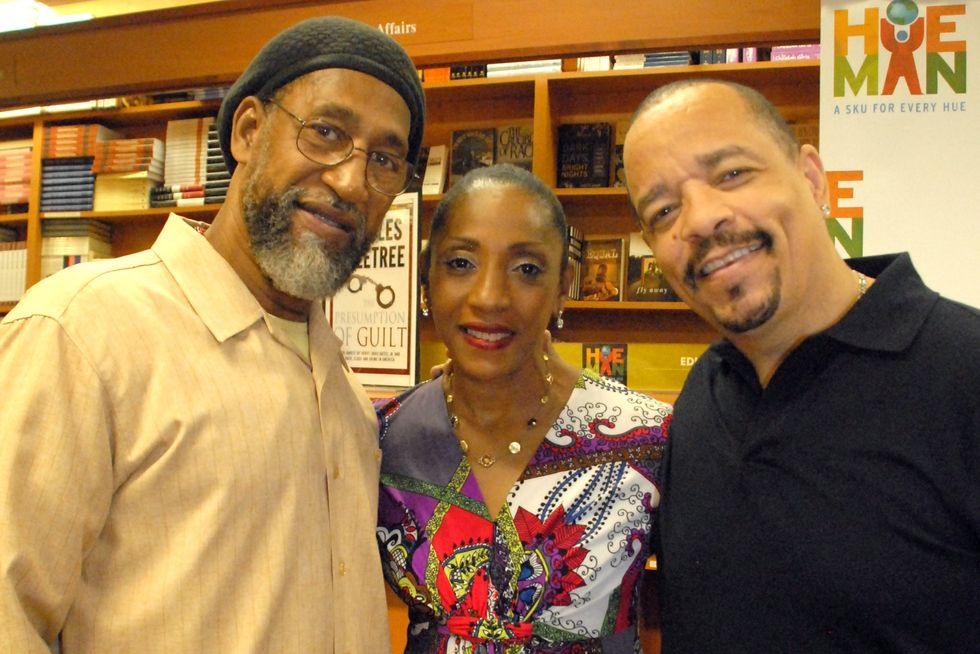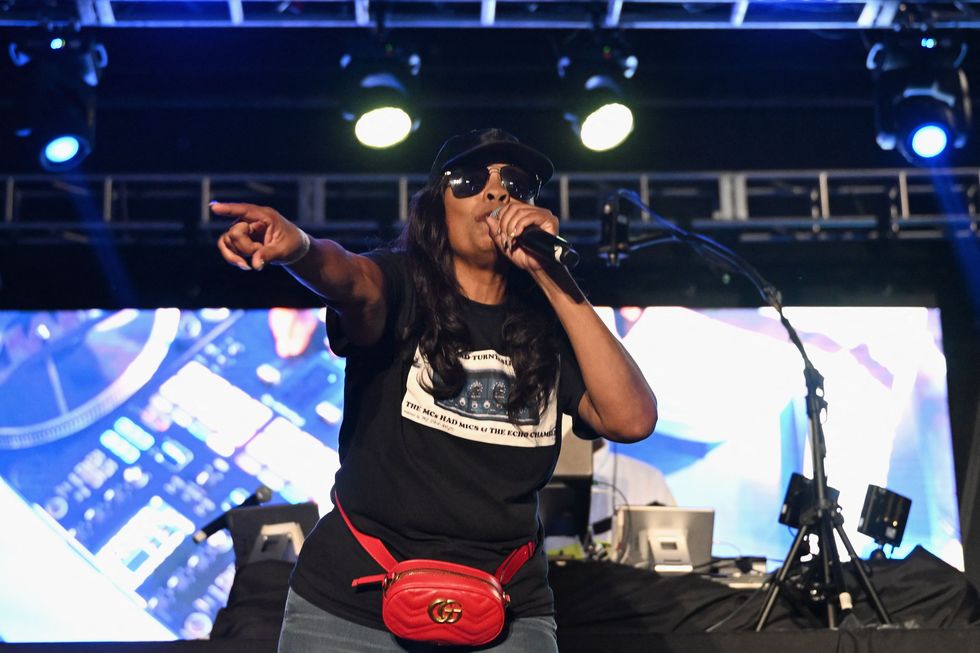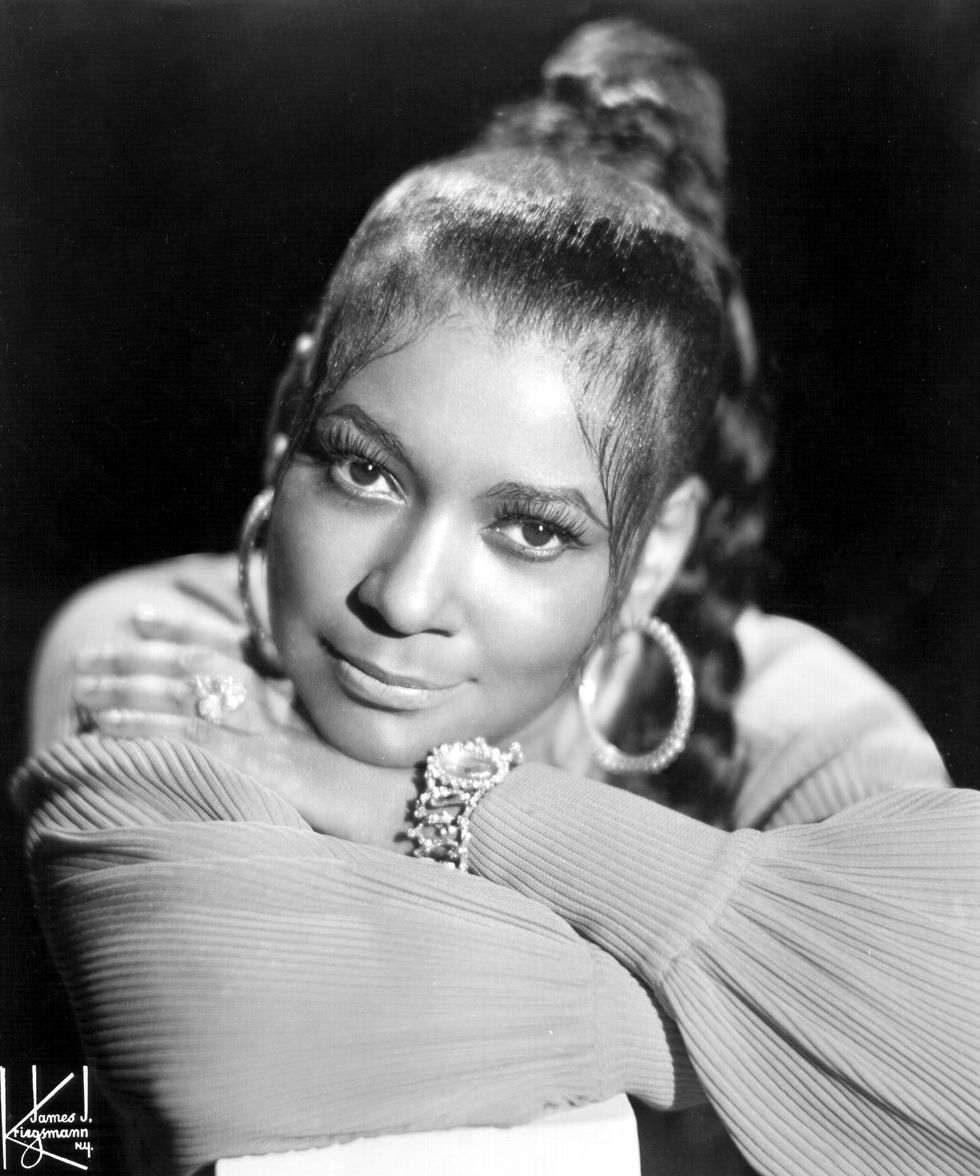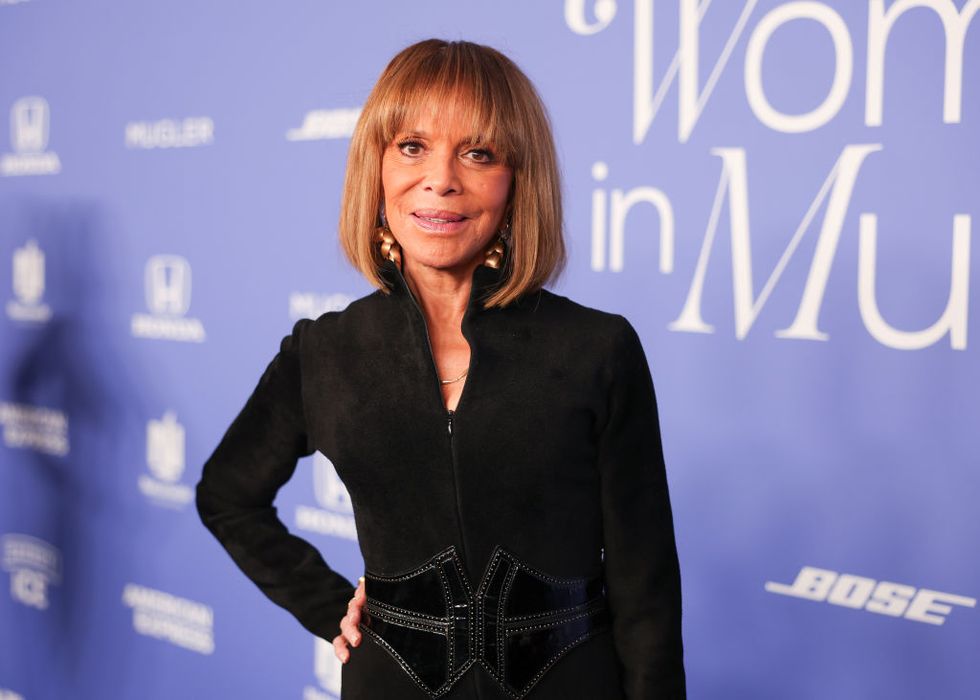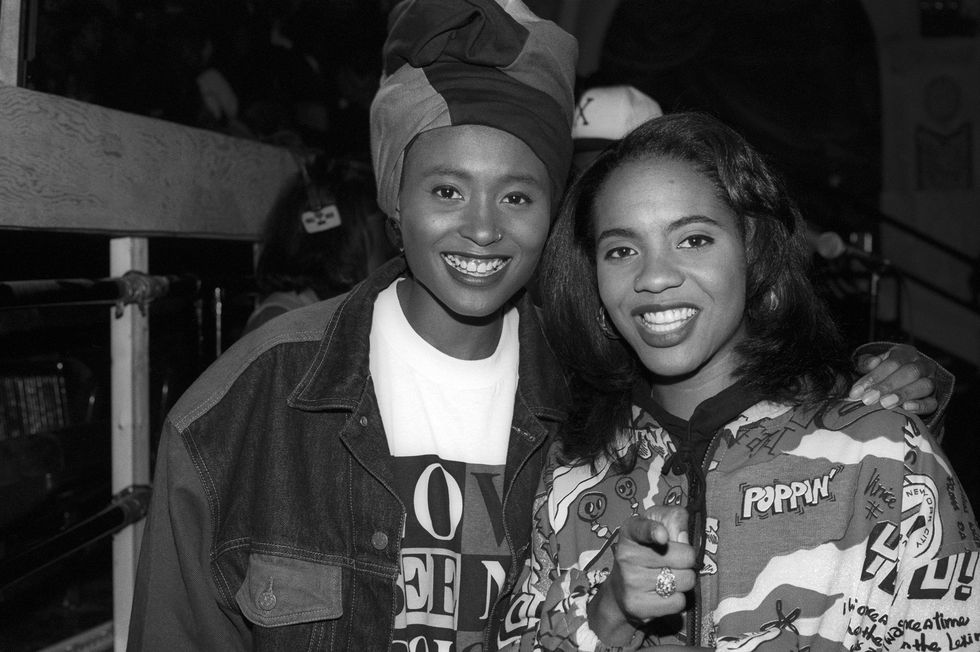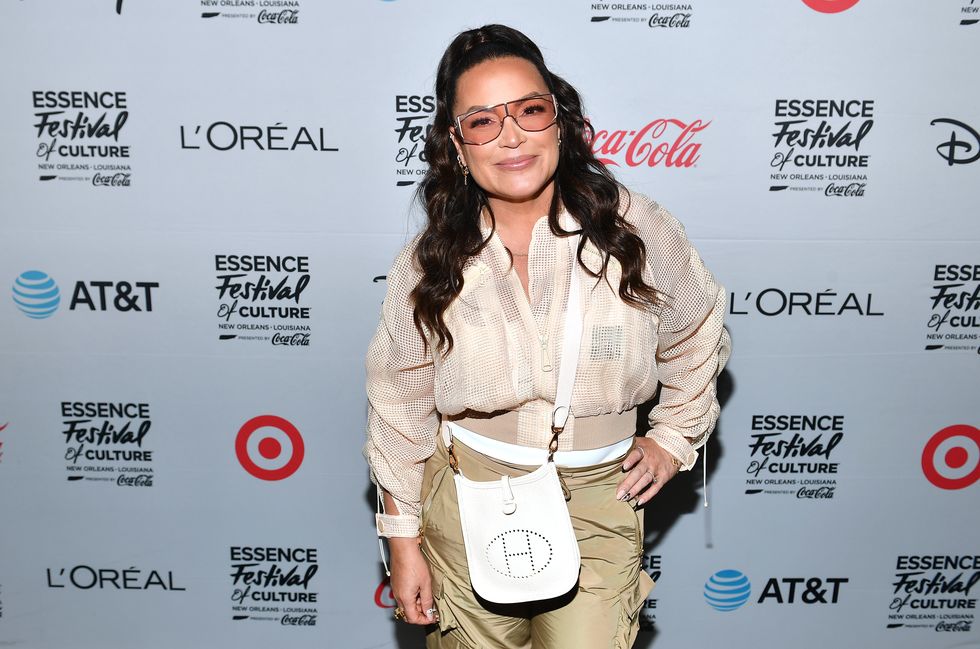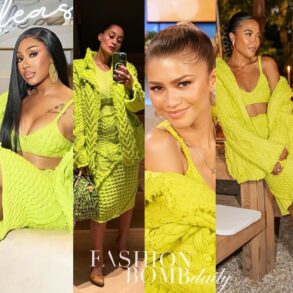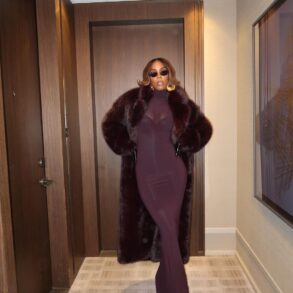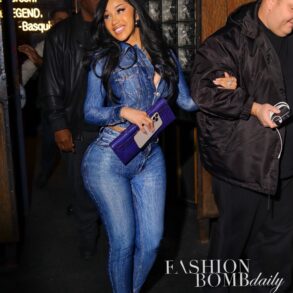Hip-hop is officially 50.
Yup, on August 11, the culture — which includes rapping, of course, but also encompasses deejaying, dance, art, knowledge, producing, fashion, and more — that started with block parties in the Bronx and turned into a global phenomenon hit its half-century mark. Even if you’re no fan of the music itself, hip-hop has left a definitive mark on life as we know it in ways both evident and subtle, from record scratches in pop and country music to logo-covered clothing to the “remixing” of content on social media.
While the prevailing, go-to image of a rapper, or hip-hop in general, is usually the image of a braggadocious, cocksure man on the mic, the truth is that women have been central in the making of the movement since the very first days. And it’s not just the women in the spotlight, like rap legends Queen Latifah and MC Lyte — many, many women helped shape and define hip-hop from behind the scenes, with their vital contributions too often overlooked or forgotten. In honor of the culture’s milestone and the ladies without whom hip-hop wouldn’t be possible, here are seven unsung women pioneers who deserve all their flowers on this birthday.
Cindy Campbell
Did you know the first hip-hop party promoter was a girl? That’s right. Long before Diddy made a name for himself with his shebangs or Kanye West (Ye) was leading his Sunday Services, Cindy Campbell created the blueprint. Remarkably, she was just 17 on August 11, 1973, when she threw a “Back to School” party that’s now considered the inception of the art form. Charging 25 cents for ladies and 50 cents for gents, Campbell — sister of legendary hip-hop forerunner DJ Kool Herc — hosted the block party that started it all.
MC Sha-Rock
Regarded as the first female emcee or “Mother of the Mic,” MC Sha-Rock, aka Sharon Green, was a member of the group the Funky 4 + 1, who rose to popularity in the late 1970s. Also a breakdancer, MC Sha-Rock was part of the first rap group to appear on TV and invented a style that went on to influence many other artists, including DMC of Run-DMC. The rapper is still active today, hosting a radio show.
Sylvia Robinson
Hip-hop is big business, yet this wasn’t obvious in the early days when artists and fans were just having fun in their neighborhoods. Sylvia Robinson, however, saw dollar signs early: After her own stint making music as a singer and guitarist, she founded Sugar Hill Records in 1979. The label released the Sugarhill Gang’s “Rapper’s Delight,” rap music’s first recording ever, that same year. Though the label folded by the mid-’80s, unable to maintain a footing due to overcrowding after the genre’s explosion, Sugar Hill Records undoubtedly paved the way for labels to come. And we have a woman to thank for blazing the trail.
Sylvia Rhone
In the modern era, few other executives of any gender have had as much influence on hip-hop as Sylvia Rhone. After working her way up from a secretary gig at a label in the 1970s, Rhone went on to become an A&R manager, director, and exec at the world’s most powerful record companies, from Atlantic to Elektra, to Universal, Motown, and many more — often as the only woman in the top spots. Scores of artists, including Lil Wayne, Missy Elliott, Busta Rhymes, and Travis Scott, have had their careers shaped by Rhone’s expertise, and she remains a larger-than-life figure in music today.
Shanti Das
Right after finishing Syracuse University in the early ’90s, Shanti Das returned home to Atlanta and quickly found herself leading the culture. As director of promotion for the influential LaFace Records, Das shaped the careers of some of the label’s biggest acts, including OutKast, Usher, and TLC. She went on to work with huge acts at other labels — Jermaine Dupri, Bow Wow, and Prince among them — but in recent years has shifted focus to advocating for mental health with her nonprofit Silence the Shame.
Dee Barnes
There’s much more to hip-hop than music, and one of its most vital but overlooked components is journalism. From the very start, writers and TV personalities interviewing
artists were crucial in raising awareness about the culture — and critiquing it too. One of the most prominent hip-hop journalists was Dee Barnes, who in the ’90s captured the scene in real time on the show Pump It Up, interviewing young artists who are now legends — among them Ice-T, DJ Jazzy Jeff, KRS-One, and Queen Latifah. Though her career was derailed after she was allegedly assaulted by Dr. Dre, she remains a towering figure in the culture thanks to her presence and definitive interviews.
Angie Martinez
Though she had her own stint with making music — she released two albums and is featured on Lil’ Kim’s enduring ladies-only track “Not Tonight (Ladies Night Remix)” from 1997 — Angie Martinez is best known as an NYC radio personality. For decades, hip-hop lovers in New York and beyond tuned in to hear Martinez interview hip-hop’s A-listers on Hot 97; interviews with Tupac and the Notorious B.I.G. are among the many that give her a deserved place in hip-hop history. She moved on to rival station Power 105.1 in 2014 and branched out to other areas of media, but no matter what she does, she’ll forever be an integral voice in hip-hop.
Malcolm Venable is a Senior Staff Writer at Shondaland. Follow him on Twitter @malcolmvenable.
Get Shondaland directly in your inbox: SUBSCRIBE TODAY




